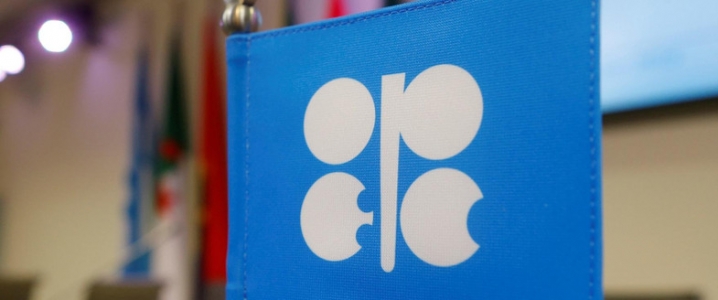A proposed U.S. legislation that could pave the way for suing OPEC for market manipulation is a “big concern” among the cartel and may weigh on the message from the meeting later this week and on some members’ incentive to continue being part of OPEC, Michael Cohen, the head of energy markets research at Barclays, told CNBC on Tuesday.
“I think it’s something that could very easily weigh on the messaging of this meeting that is going to happen on Thursday and Friday,” Cohen told CNBC, when asked to comment on the proposed U.S. legislation in light of the current divisions within OPEC, especially Qatar quitting the cartel.
The proposed U.S. legislation—the so-called No Oil Producing and Exporting Cartels (NOPEC) Act—could pave the way to antitrust lawsuits in the U.S. against the cartel and its national oil companies, if passed.
Forms of antitrust legislation aimed at OPEC were discussed at various times under Presidents George W. Bush and Barack Obama, but they both threatened to veto such legislation.
In May this year, the NOPEC Act was introduced again. Such legislation would make OPEC subject to antitrust laws by removing a state immunity shield created by judicial precedent.
Given U.S. President Donald Trump’s continued criticism of OPEC and the way the cartel manipulates the oil market and prices, OPEC members are concerned that the legislation may pass this time around.
“It is certainly possible that a country that is looking to enhance or burnish its ties to the United States may look at the NOPEC legislation and say: ‘Well, we don’t want to be a part of this organization anymore,’” Cohen told CNBC today.
OPEC is also said to have urged all its members not to mention specific oil prices, and to instead stick to the ‘market stability’ narrative in public comments about oil policies to avoid the risk of potential U.S. antitrust lawsuits for manipulating the market if the United States passes the legislation.
By Tsvetana Paraskova for Oilprice.com
ADVERTISEMENT
More Top Reads From Oilprice.com:
- OPEC Oil Exports Jump Ahead Of Meeting
- Putin Looks To Capitalize On Waning U.S.-Saudi Relations
- Is This The Beginning Of The Next Bull Run In Oil?



















A cartel is defined as an association of manufacturers and suppliers whose goal is to increase their collective profits by means of price fixing, limiting supply, preventing competition or other restrictive practices.
How could OPEC be a cartel when it was founded as a counterweight against the previous “Seven Sisters” cartel (Exxon, Mobil, Chevron, Texaco, Gulf oil, BP and Shell) which dominated every aspect of global oil through price fixing, limiting supplies and suppressing competition for the sole purpose of maximizing its profits.The main purpose behind the founding of OPEC was to give producers more control over their own oil.
One would expect a cartel to curb production in order to raise the price of its product as well as to share market among its members. However, OPEC has never once tried to fix a specific price nor has ever been able to achieve this goal.The fundamentals of the global oil market are the ones that have always determined the oil price helped occasionally by geopolitics. OPEC has no control on these fundamentals and therefore has no control on the movements of prices. For instance, OPEC was not able to prevent prices from falling in the 1980s even after it adopted the production quota system in 1982. Moreover, OPEC was neither able to temper oil prices in 2008 when prices rocketed to $147 a barrel nor was it able to stop the 2014 oil price crash. Furthermore, OPEC has never excluded competition. And the proof is that US shale oil is now being exported around the world.
When it comes to limiting oil supply, a true cartel like the “Seven Sisters” was able to do exactly that because it was virtually in control of global oil resources. OPEC has never been in such a situation. It only accounts for 42.6% of the global oil market with the rest of the oil-producing nations of the world accounting for 57.4%.
OPEC has never been involved in any disputes related to the competition rules of the World Trade Organization (WTO). On the other hand, the United States has so far broken the rules of the WTO by imposing sanctions on virtually everybody, walked away from United Nations-recognized Iran nuclear deal and also the UN-supported Climate Treaty without batting an eye lid. One who lives in a glass house shouldn’t throw stones.
Still, OPEC shouldn’t be unduly worried about the NOPEC Act. If NOPEC ever becomes a law and the United States tries to sue any OPEC member under the NOPEC Act, OPEC members collectively could retaliate by withdrawing every single penny they keep in the United States and stop investing in the US altogether. They could also nationalize American interests in their oil industries and discard the petrodollar and adopt the petro-yuan instead.
Dr Mamdouh G Salameh
International Oil Economist
Visiting Professor of Energy Economics at ESCP Europe Business School, London